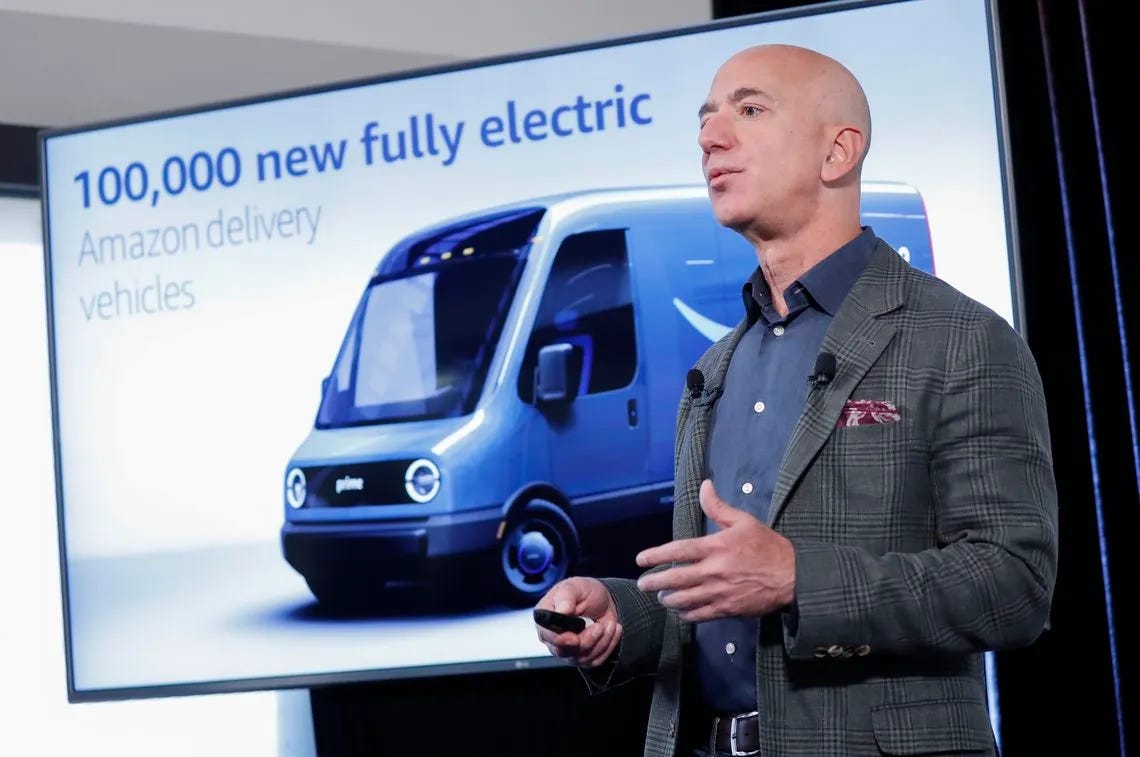No parking no business, my **ss
Welcome to "Nouveau Monde", sort of a "Nouveau Genre" newsletter to better understand how to make the world better through the lens of retail. This is #2.
Thanks for subscribing to Nouveau Monde and for your supportive feedback ! Please, tell us what you thought of the first edition or this one by just hitting reply. Any feedback will be appreciated. Was it too long / too short / too… ? We’d love to know ! And if you liked it, please share it / forward it to people you think could be interested !
In this edition, Phil and Anthony are on the road, trying to find a parking place for our EV :-) Have Fun !
No parking no business, my **ss
by Anthony
“No parking No business” is a saying that any retailer has heard quite a bit. And if it has been mocked by digital and e-commerce people, well in the brick and mortar space, it is still very strong.
Sorry guys but it is also wrong for the floor : New York City published a report in 2012 (!) showing that when they added bike lanes on 9th avenue, retailers saw an increase of 49% in their revenue. Since then, there have been many studies that proved it right, even if, each time, retailers in concerned spaces are always reluctant to see cars banned. Eventually, they are always proved wrong and business is always flourishing, at least, if there is a good concertation between urban planners and retailers.
In fact, when you think about it, how can it possibly be otherwise ? Look at the 2 pictures below and think about where a customer will be willing to spend more time shopping ?



You’ll tell me that this is not suitable for all businesses and that when people need to do grocery shopping, they need a car ! Well, not when the store and the infrastructure around put the car literally at the back : have a look at this supermarket front door in the Netherlands:

Here, you can see no car but people doing their weekly shopping, and everything is fine ! Yes, there is a parking lot, but it is at the back of the store !
In fact, a 2016 study shows that if a car driver spends more money par hour than a bike rider on a store, if you compare it to its footprint, the bike rider will spend 5 times more than the car driver !
Good news, retailers, there are plenty of solutions to transform your parking lot and make it profitable, especially in these times of Covid and Lockdown !
Just one exemple : turn them into dark kitchens with the startup REEF !
To conclude, a “fun” fact: when the automaker Tesla needs to pay its employees to take their bike instead of their car because of the lack of parking space… Do you see the irony ?
Also, think about it next time you’ll be on a traffic jam : “You’re not stuck in the traffic, you are the traffic”
Traffic jam, traffic jam…What about electric vans, baby?!
by Phil
FedEx has been testing electric vehicles the past ten years and announced in November 2018 that it would add to its fleet 1,000 electric vans from Chanje Energy, a California-based company, buying 100 of the vans and leasing the remaining 900. FedEx wanted to test the vans with full attention before to get with bigger numbers, and be sure about their relevance. Chanje is an OEM delivering medium duty electric vehicles and turnkey energy infrastructure services for the last mile industry.
September 2019, Amazon, that has to deal with tremendous delivery costs and needs to put a full control on it, announced the purchase of 100,000 electric vans from a startup company, Rivian. Rivian is an American automaker and automotive technology company founded in 2009, based out of Plymouth, Michigan, that develops vehicles, products and services related to sustainable transportation. The startup has raised about $8 billion since then, including $500 million from Ford, and…$2 billion from Amazon.
UPS has also been testing electric delivery vehicles the past years and is even converting some of its older diesel vans to electric drives. That said, the company came out last April with an “initial order” of 10,000 electric vans from Arrival, a London, UK, based startup which UPS has partnered with since 2016. “UPS and Arrival have co-developed the vehicles to exactly match UPS’s specifications”, said Arrival.
British electric vehicle start-up Arrival announced Wednesday that it will go public through a merger with a U.S. blank-check company. This year has seen a flurry of SPACs, or special purpose acquisition companies, come to market as businesses have shunned the traditional initial public offering process. SPACs are companies that raise funds to finance a merger deal that takes the target firm public.
Huge companies involved in the shipping industry with a big investment capacities like Amazon, UPS, or FedEx are deciding to partner with startups in order to create electric vans, putting those collaboration in direct competition with legacy automakers. Make a better world, for sure. Big players like Amazon cannot be absent of the new sustainability race but they have to play a smart game. Currently in a big long run in a very competitive world, understood they would make a better shortcut working with companies having the capacity to help them develop fast their new green track in the 21st Century.
Bonus track
So long guys…
Loved this newsletter ? Please subscribe, share, comment !








What a great content guys!